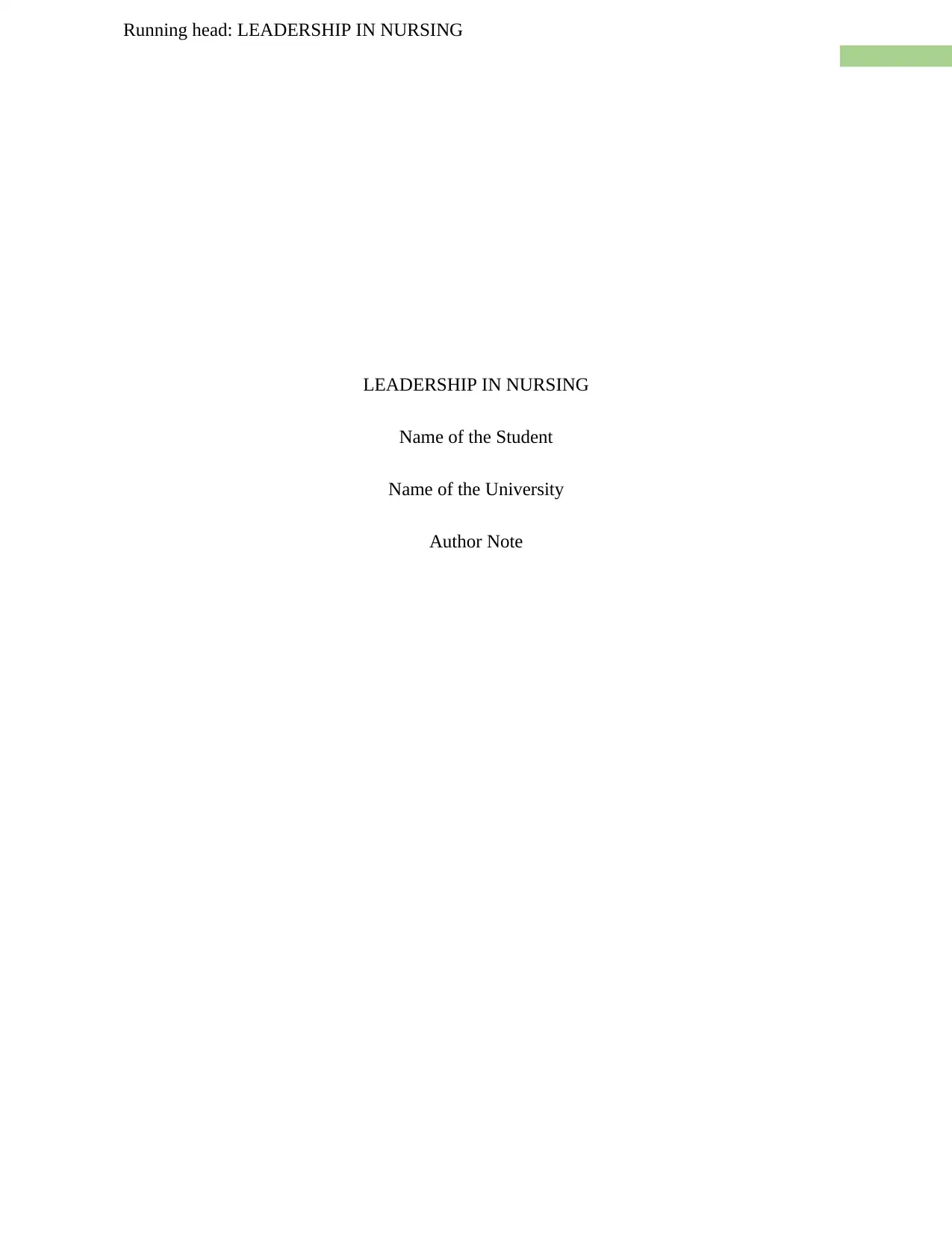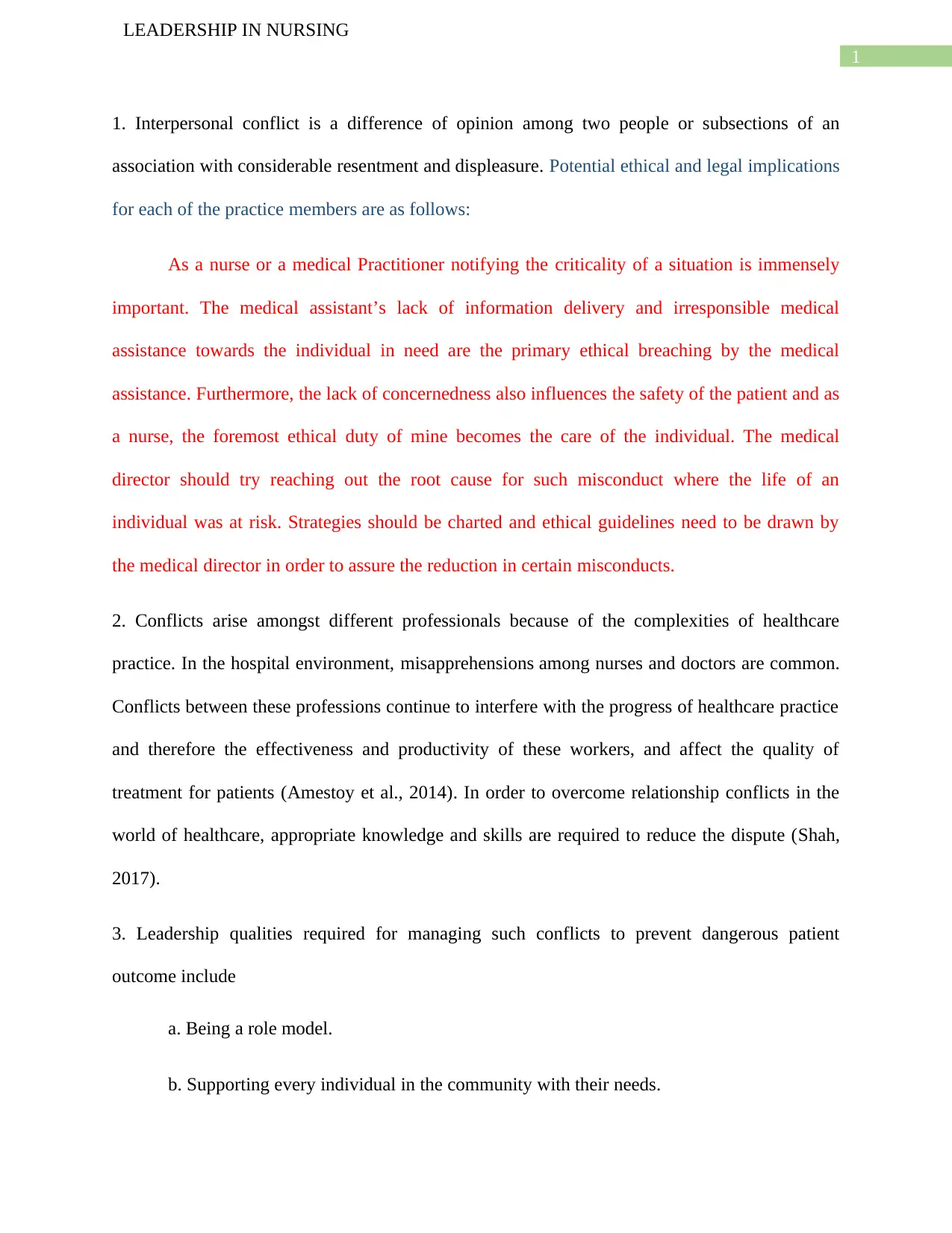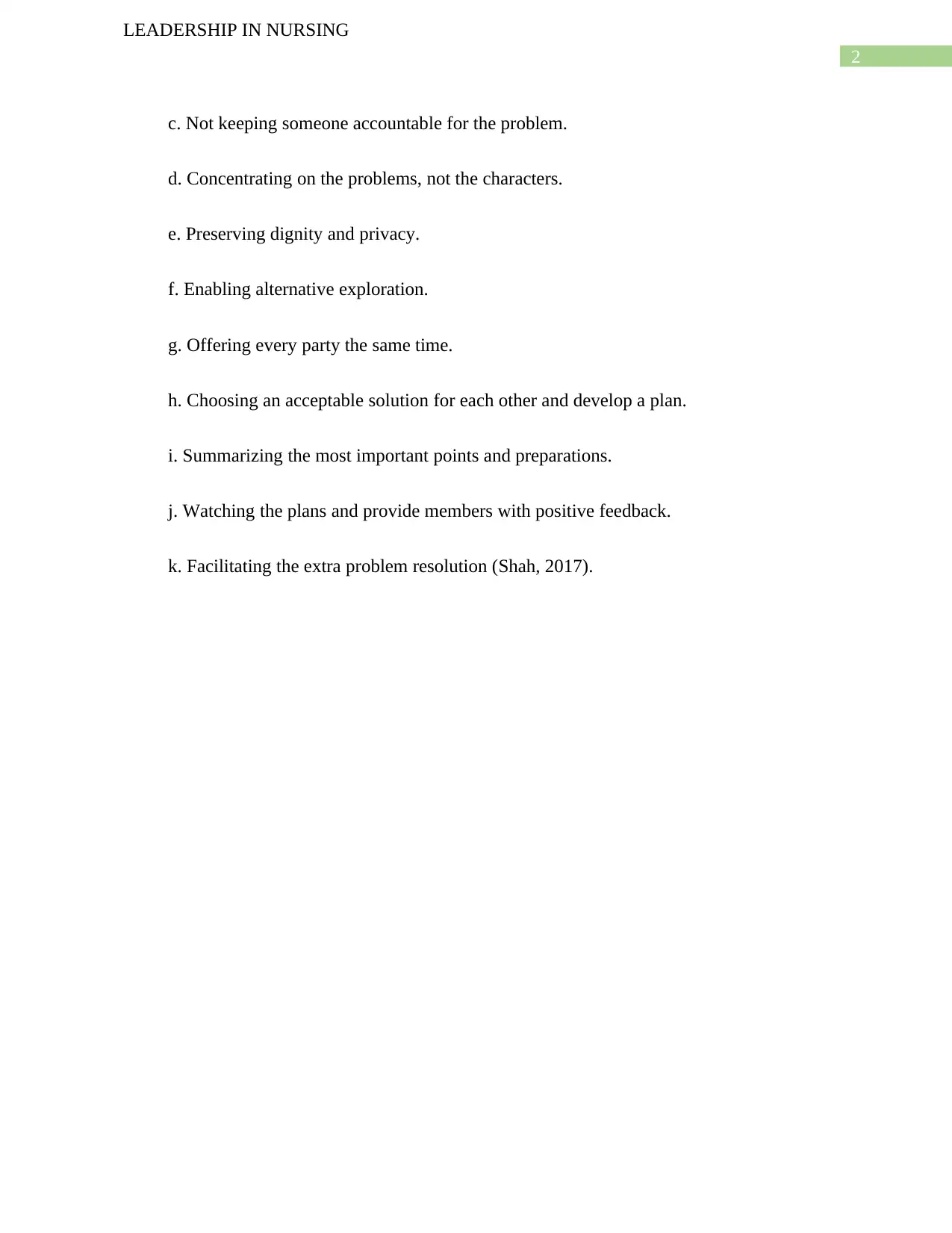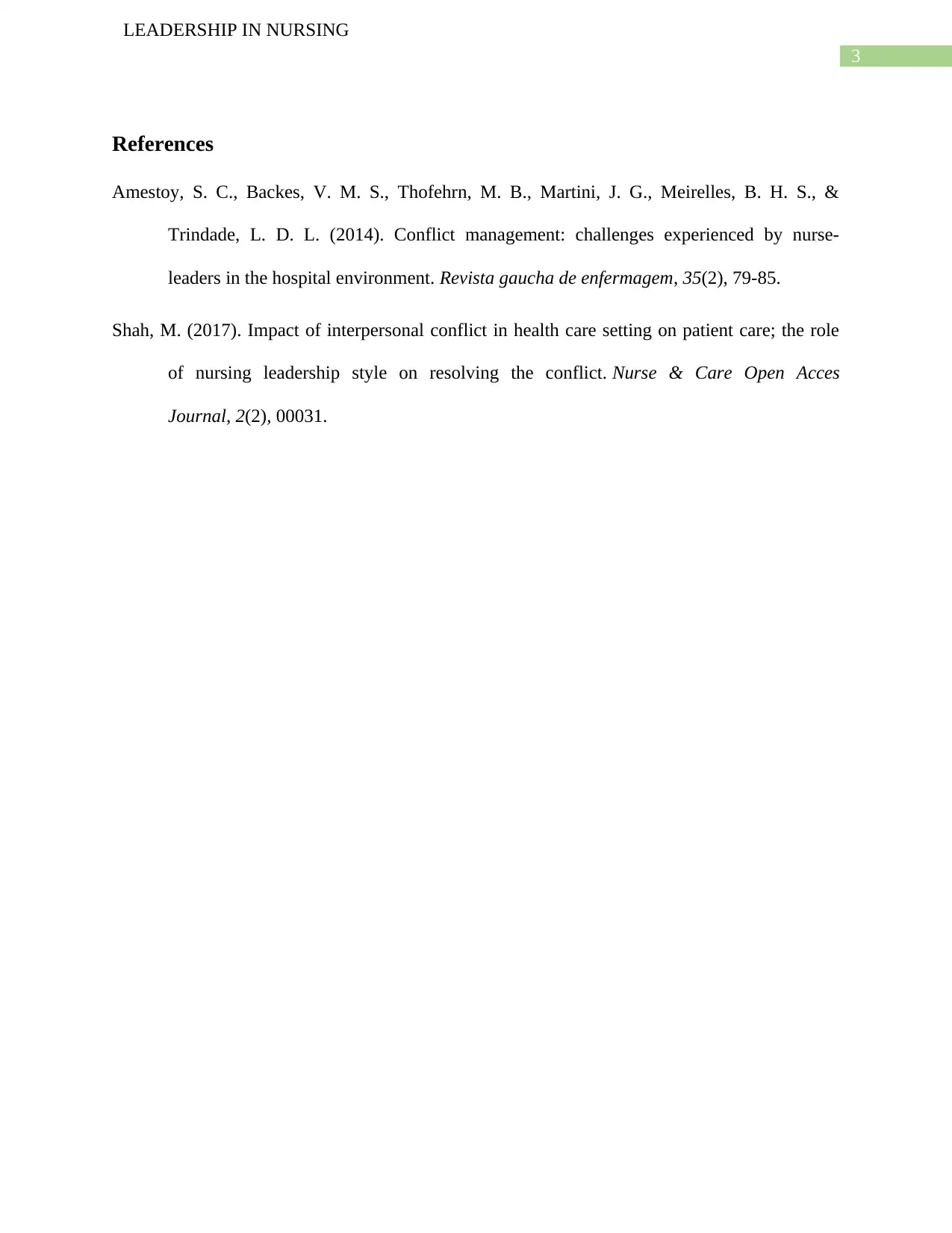Conflict Management in Nursing: Strategies and Implications Report
VerifiedAdded on 2022/08/16
|4
|514
|9
Report
AI Summary
This report delves into the critical aspects of leadership in nursing, specifically focusing on conflict management within healthcare settings. It addresses the ethical and legal implications of interpersonal conflicts, such as those arising from miscommunication or negligence in patient care, emphasizing the nurse's primary ethical duty to ensure patient safety. The report highlights the challenges and complexities of conflict between different healthcare professionals, particularly nurses and doctors, and how these conflicts can negatively impact patient care and the overall effectiveness of healthcare practices. It then outlines essential leadership qualities for managing such conflicts, including being a role model, supporting team members, focusing on problem-solving rather than blame, preserving dignity, enabling alternative exploration, and providing equal opportunities for discussion. The report concludes by emphasizing the importance of developing and implementing plans to resolve conflicts and providing feedback to improve patient care outcomes.
1 out of 4











![[object Object]](/_next/static/media/star-bottom.7253800d.svg)